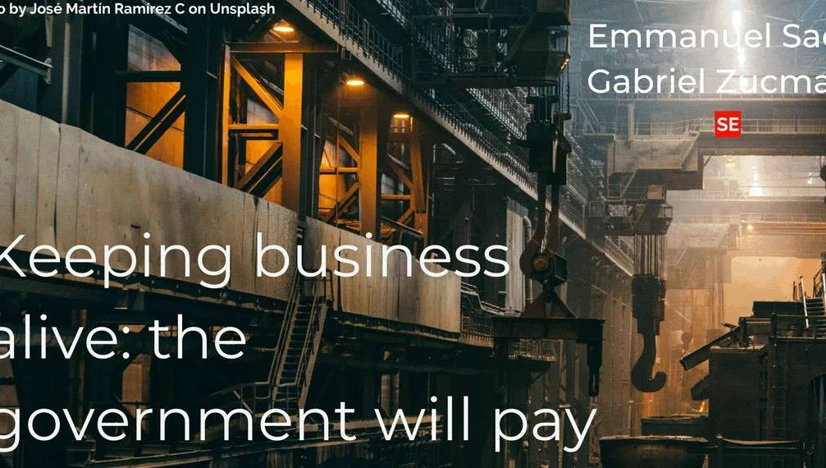Introducing the Payer of Last Resort
Social Europe, 2020
The coronavirus is developing into an economic crisis in the real economy and has the potential to push a multitude of businesses into insolvency. In order to stop this trend, governments in countries with possible lockdown situations should ensure businesses that they will pay no matter the costs.
Saez and Zucman (University of Berkeley, California) argue that governments should help hibernating businesses with a sort of social insurance scheme that prevents them from laying off employees. In addition to the support for businesses, they advocate that self-employed workers could report as idle workers as well and thus would be eligible for the special unemployment insurance as well. The progressivity of an insurance scheme is far more desirable than universal income approaches, they add.Several countries have installed plans to provide sufficient liquidity in the form of interest-free loans for example but this policy could lead to a massive debt burden of businesses in the long haul. Loans will not cover the losses suffered during a lockdown that most likely will not be compensated afterwards.
Comment from our editors:
The comeback of Hyman P. Minsky?
Saez and Zucman also argue against postponing tax payments on a wider scale since it would also benefit individuals and businesses not directly affected. The same goes for universal income models or helicopter money.
The economists estimate that a social insurance program that they envision would cost 3.75 per cent of GDP in the US which should be financed through an increase in public debt. With the model of a payer of last resort, Saez and Zucman follow up on the work of Hyman P. Minsky, who already started advocating for an investor of last resort and an employer of last resort in the 1970s. Today, Minsky is seen as the founding father of the Modern Monetary Theory who is arguing for public employment and insurance programs on a huge scale for quite some time.
Go to: Introducing the Payer of Last Resort

